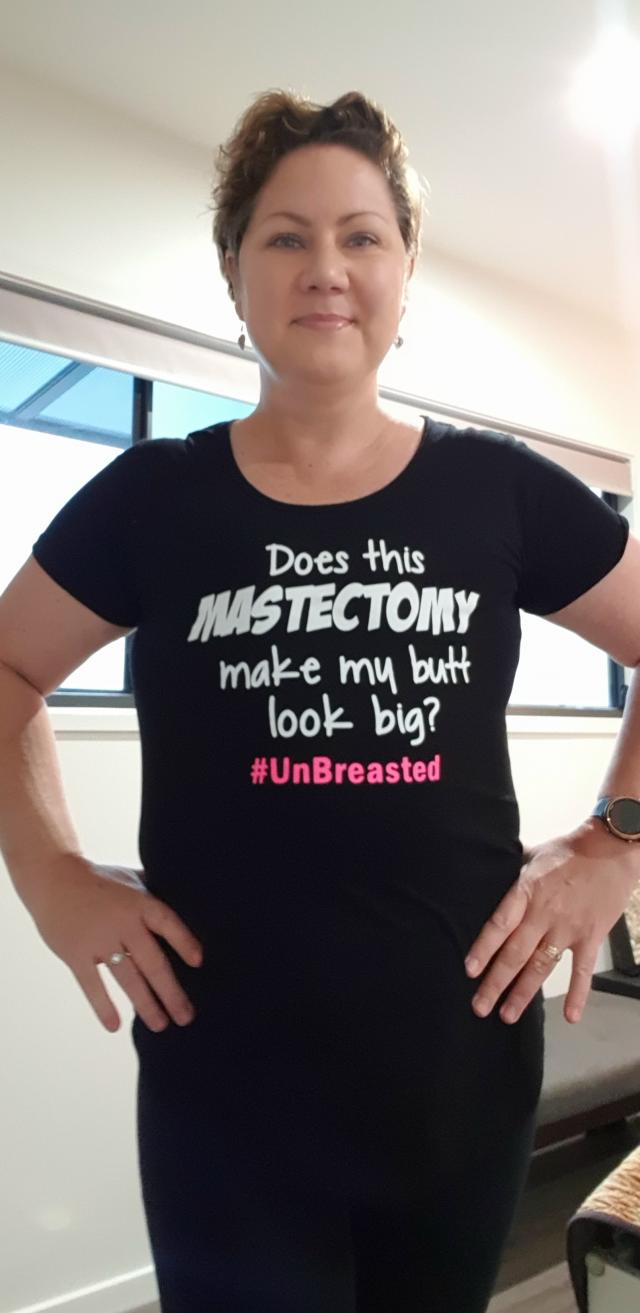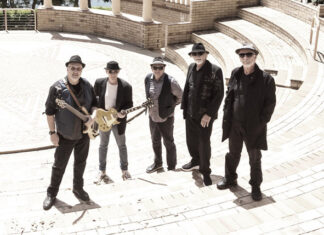Sunshine Coast breast cancer survivor and flat advocate Joanna Atzori is calling for parity among reconstructive surgical outcomes presented to Australian women who undergo mastectomy surgery for cancer or risk reduction.
Joanna, age 46 from Maroochydore, and author of online blog UnBreasted, is one of three advocates spearheading a national research study into breast surgery options, outcomes and resources offered to women who undergo mastectomy.
The study through Flinders University invites women who have undergone a single or double mastectomy with a flat closure outcome to share their experience. Their data will inform advocacy efforts in this space and ensure future generations who undergo mastectomy are presented with chest-inclusive surgery options.
Joanna said she was proud to be an advocate and change-maker in the Australian breast cancer community celebrating women who choose flat reconstruction after mastectomy.
Joanna’s involvement in the national research study was influenced by her desire to change perceptions of flat reconstruction – called aesthetic flat closure – and work towards future generations of women being provided information about the equality and validity of all surgical outcomes following mastectomy.
“Despite what many people believe, not every woman has the need or desire to replace her breasts surgically following mastectomy,” Joanna said.
“There are many women who – like me – are attracted by the opportunity of removing their breasts entirely and living flat or having the option to wear protheses inside specialised mastectomy lingerie and swimwear.”
Following mastectomy of her right breast in 2019, aged 41, Joanna lived for 18 months as a ‘uniboober’, using a prosthesis (breast form) in place of the removed breast. Around a year after diagnosis, she discovered she could achieve a flat chest outcome through prophylactic mastectomy which involved voluntary removal of her remaining left breast.
Joanna said the support she received from her breast surgeon is unfortunately not as common as it should be for Australian women who undergo mastectomy.
“My surgeon supported my decision to remove the remaining breast and unlike many other surgeons, she did not attempt to encourage me to pursue breast reconstruction or convince me that living as a flat woman would have a negative impact on my quality of life,” Joanna said.
“I’ve heard horror stories from some women who said they felt pressured by comments and information presented by their healthcare team to choose breast reconstruction, or they simply weren’t given information about all post-surgery options including flat reconstruction (aesthetic flat closure).
“This study is designed to provide a clearer picture of the impact to patient mental and physical health outcomes, especially among those who feel they weren’t presented with chest-inclusive options at the time of their mastectomy surgery.
“The research team want to find out more about the social norms and assumptions being conveyed to women who undergo mastectomy. Once we understand what type of comments they are receiving from their surgeons and healthcare team, we can better educate healthcare professionals about being impartial and allowing the patient to make an informed choice on her surgical outcome.”
Joanna is one of three administrators of the Sunshine Coast Breast Cancer Friendship Circle, a social support group formed in 2019 for local breast cancer survivors who meet monthly for friendship, support and understanding.
The national study was the brainchild of flat advocates Robyn Smith (Canberra), Melanie Law (Central Coast NSW) and Joanna who each have lived experience of flat reconstruction due to breast cancer diagnosis or hereditary breast cancer risk (BRCA gene mutation). Supporting the study are Dr Fiona Crawford-Williams, Flinders University, and Dr Kirsty Seward, behaviour change scientist and body image coach.
Flat advocate and BRCA2 gene mutation carrier Robyn Smith, age 44 from Canberra, ACT, carries the BRCA2 gene mutation and underwent risk-reducing mastectomy surgery aged 39 in 2019, choosing breast reconstruction with implants. After experiencing symptoms of breast implant illness (BII), she ‘explanted’ in 2020 (removed the implants) and opted for flat reconstruction (aesthetic flat closure).
Ms Smith said lack of existing evidence-based data, support and informational resources were some of the reasons that motivated her involvement in the national survey.
“There’s currently a large flat community in Australia which is continually growing, but if there is limited data and information about us and how we came to the decision to go flat, how do we expect to properly advocate for this group of women and the future generations coming behind us?”
Breast cancer survivor and flat advocate Melanie Law, age 55 from Tumbi Umbi, NSW, said she believes there are social assumptions about the female body conforming to particular aesthetics, and therefore many people expect that women should want to reconstruct their breasts rather than going flat and living breastless.
“I feel some professionals in the healthcare community assume that women recovering from mastectomy may have improved mental health outcomes if they can reinstate their original body shape. This isn’t always the case and it didn’t apply to me and many others.”
Contributions to the Flinders University survey are anonymous, information is confidential, and data will be deidentified. The survey is open to Australian residents and will close in February 2024. Questions or requests for information can be directed to programs@pinkhope.org.au
The survey can be completed online at tinyurl.com/4m77z99e








